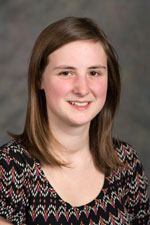Distinguished Professor Becomes AIChE Fellow
sue@susanweaver.net
PULLMAN, Wash. – Washington State University Voiland Distinguished Professor Yong Wang was elected a Fellow of the American Institute of Chemical Engineers (AIChE) in May, just a couple months after being named a fellow of the Royal Society of Chemistry (RSC).
Wang’s major advisor Bill Thomson nominated him for the honor.
“When working with Yong I mostly brought him the resources he needed, and then just tried to stay out of the way. He surpassed me quickly and now is probably one of the most notable catalyst researchers in the world,” Thomson said.
Wang received his master’s and doctoral degrees in Chemical Engineering from WSU’s Gene and Linda Voiland School of Chemical Engineering and Bioengineering. His research focuses mainly on the development of novel catalytic materials and reaction engineering for the conversion of fossil and biomass feedstocks to fuels and chemicals.
Wang holds a joint appointment with the Pacific Northwest National Laboratory (PNNL) as well, where he is a Laboratory Fellow and Associate Director of PNNL’s Institute for Integrated Catalysis. He was named the PNNL Inventor of the Year twice. His research on energy and renewable fuels is known around the world and has led him to publish 165 peer-reviewed articles, hold 86 issued U.S. patents, and earn several awards, including three prestigious R&D 100 awards. The Chinese Institute of Engineers named him the 2006 Asian American Engineer of the Year and he is also a Fellow of the American Association for the Advancement of Science (AAAS) and a fellow of the American Chemical Society (ACS).
The AIChE is a professional society with more than 45,000 members from more than 90 countries. According to the AIChE website, members are eligible to become fellows when they have significant chemical engineering practice (generally 25 years), and have made distinctive professional accomplishments and contributions. Wang will be presented with his honor at the upcoming AIChE meeting in November 2013 in San Francisco, California.
Find this news release at WSU News online at http://bit.ly/10Ni4hK


